Rail freight boosted by HGV driver shortage and climate change
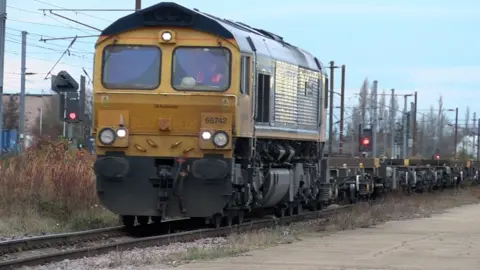 BBC
BBCBusinesses are turning to rail freight due to HGV driver shortages and carbon emission worries, the industry said.
The owners of Daventry International Rail Freight Terminal (DIRFT) say this is their busiest ever Christmas period.
A spokesman for GB Railfreight also said it had trained 70 new train drivers in the last 12 months at its centre in Peterborough.
Operations manager Stuart Vinten said "the capacity is there" for more rail transport.
He said the firm was running 400 trains a day and he "would love to see it grow immensely".
"The whole rail freight industry is booming," he added.
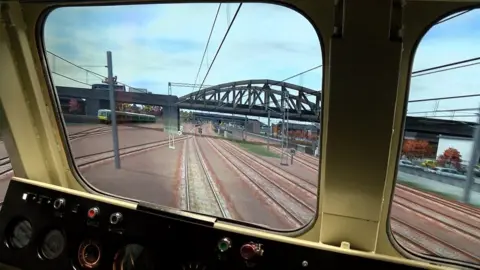
Lloyd Johnson, a trainee driver at GB Railfreight, said it was "a vital job for the economy".
"It's a career that can last a lifetime and I see it as a prestige job, a job we can be proud of doing," he said.
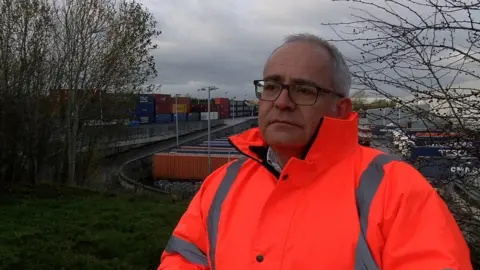
Nine thousand people work at DIRFT and the site will take on another 4,000 people in January when a new terminal opens.
Paul Weston, from the terminal's owner Prologis UK, said supermarkets had increased the number of trains using the centre, with Tesco running special wine trains to make sure stores had enough supplies.
He said: "We've got services from France, Spain and Germany but also there's plenty of UK movement from the big ports, like Felixstowe and Southampton."
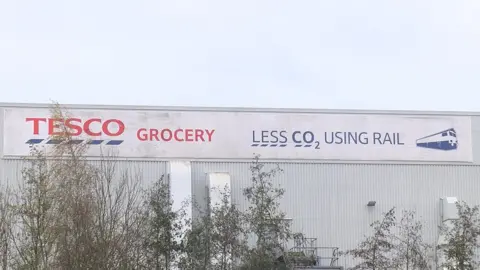
Mr Weston said companies "were looking at their supply chains" to bring down their carbon footprint and because of the shortage of HGV drivers.
He said: "For every train that comes in, it takes 60 HGVs off the road.
"That is a huge saving in terms of carbon, it's a massive way of addressing the green agenda and those pinch points of getting HGV drivers."
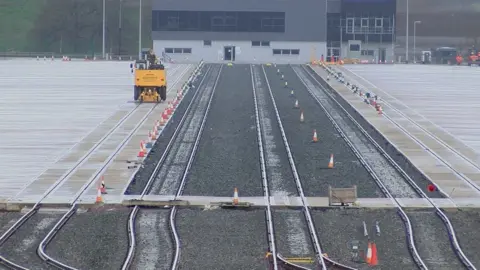

Find BBC News: East of England on Facebook, Instagram and Twitter. If you have a story suggestion email [email protected]
